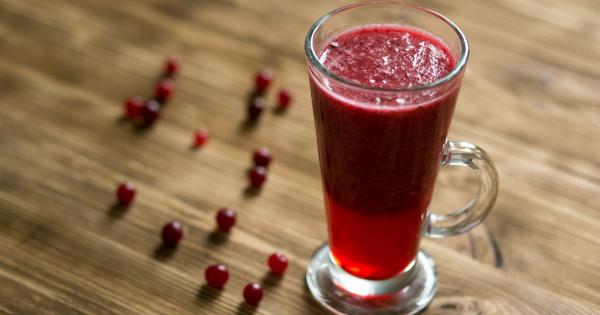Urinary tract infections (UTIs) are a common and painful condition that affects millions of people worldwide.
The discomfort and inconvenience caused by UTIs have led many individuals to search for natural remedies, with one of the most popular options being cranberry juice. However, the effectiveness of cranberry juice in preventing and treating UTIs has been the subject of much debate. In this article, we will explore the facts and fiction surrounding cranberry juice and its potential role in managing UTIs.
What is a UTI?
A UTI is an infection that can occur in any part of the urinary system, including the bladder, urethra, and kidneys. The majority of UTIs are caused by bacteria, most commonly Escherichia coli (E. coli), which naturally inhabit the digestive tract.
When these bacteria enter the urinary tract, they can multiply and cause an infection.
The Link Between Cranberry Juice and UTIs
Cranberry juice has long been touted as a natural remedy for UTIs. The theory behind its potential effectiveness lies in certain compounds found in cranberries called proanthocyanidins (PACs).
These PACs are believed to inhibit the adherence of bacteria, particularly E. coli, to the urinary tract walls, preventing infection. By preventing the bacteria from attaching to the walls, it is thought that cranberry juice can help flush out the bacteria through urine, reducing the risk of infection or aiding in its treatment.
Research on Cranberry Juice and UTIs
Over the years, numerous studies have been conducted to determine the efficacy of cranberry juice in preventing and treating UTIs. However, the results have been mixed, and the overall evidence remains inconclusive.
Prevention of UTIs
Some studies have shown that consuming cranberry juice or taking cranberry supplements may help reduce the risk of recurrent UTIs, particularly in certain populations such as women, the elderly, and those with compromised immune systems.
However, the preventive effects of cranberry juice are modest at best and may not be applicable to everyone. The dosage and frequency required to potentially achieve these benefits also remain unclear.
Treating UTIs
While cranberry juice may have some preventive effects, its ability to treat an existing UTI is far less certain. Some studies have suggested that cranberry products may have antibacterial properties that can help kill the bacteria associated with UTIs.
However, the concentration of cranberry compounds required to produce these effects may be difficult to achieve through the consumption of cranberry juice alone.
It is important to note that cranberry juice should not be relied upon as a standalone treatment for UTIs. If you suspect you have a UTI, it is crucial to seek medical attention and follow the prescribed course of antibiotics.
Delaying appropriate treatment can lead to complications and a worsening of symptoms.
Considerations and Potential Risks
While cranberry juice is generally safe for most individuals to consume, there are a few considerations and potential risks to keep in mind.
Firstly, cranberry juice is often high in sugar and calories. It is essential to choose unsweetened cranberry juice or opt for cranberry supplements if you are watching your sugar intake or have specific dietary restrictions.
Additionally, some individuals may experience gastrointestinal discomfort or diarrhea when consuming large amounts of cranberry juice or supplements.
If you have a history of kidney stones or are on certain medications such as blood-thinners or antacids, it is advisable to consult with your healthcare provider before incorporating cranberry juice into your routine.
Lastly, cranberry juice should not replace medical advice or treatment prescribed by a healthcare professional.
If you have recurrent UTIs or ongoing urinary symptoms, it is vital to consult with a healthcare provider to determine the underlying cause and appropriate management plan.
Tips for UTI Prevention and Management
While cranberry juice may offer some individuals limited protection against UTIs, there are other evidence-based strategies that can help prevent and manage these infections:.
- Stay hydrated by drinking plenty of water throughout the day.
- Urinate frequently and fully empty your bladder.
- Wipe from front to back after using the toilet to prevent the spread of bacteria from the anus to the urethra.
- Avoid using irritating products such as douches, deodorant sprays, or bubble baths in the genital area.
- Empty your bladder before and after sexual intercourse.
- Wear breathable underwear and avoid tight-fitting clothing.
- Practice good hygiene, including regular bathing and washing the genital area with mild soap and water.
If you experience recurrent UTIs or persistent symptoms despite preventive measures, it is crucial to consult with a healthcare professional for further evaluation and management.
The Bottom Line: Cranberry Juice and UTIs
While cranberry juice is often touted as a natural remedy for UTIs, the scientific evidence supporting its effectiveness is limited and inconsistent.
It may offer some preventive effects, particularly for certain populations, but should not be relied upon as a standalone treatment for existing UTIs. Seeking medical attention and following prescribed antibiotic treatments are necessary to effectively manage UTIs and prevent complications.
It is always advisable to consult with a healthcare professional for personalized advice and guidance regarding UTI prevention, treatment, and management.






























